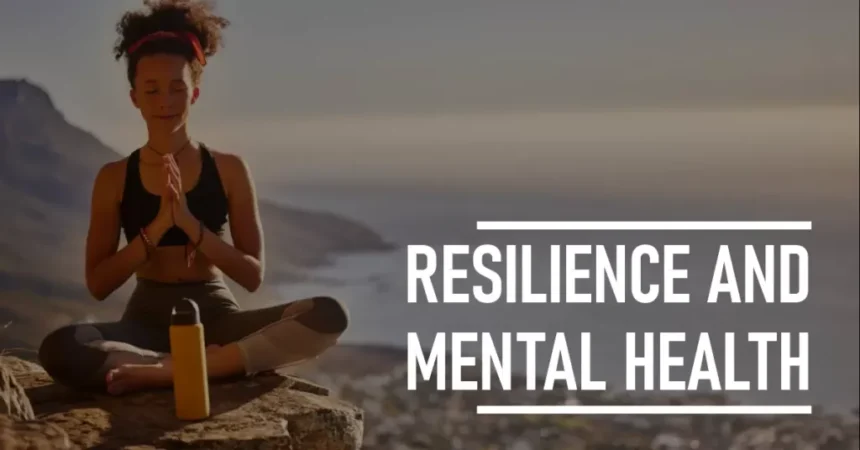Introduction
Simple Strategies for Everyday Life to Mental Wellness,Fitness and Resilience:
In this quickly impacting world, it is significant as ever before to be solid. This likewise remembers centering for mental wellbeing and strength. It is a guidance manual on how one can upgrade their psychological well-being, assemble strength, and accomplish all out prosperity.
Understanding Mental Fitness and Resilience
Overall health and well-being are founded on mental fitness. In other words, a sound state of mind premised on positive thinking, emotional stability, and cognitive activity. The ability to rebound from tough situations, all the while preserving emotional stability is known as resilience. Paired they make an independent and enduring design that enables a satisfying life.
Practical tips towards mental wellness
Mental Positive Thinking and Gratitude
To keep up with mental soundness, a positive outlook is essential. Contemplations loaded up with energy decrease pressure and further develop mind-set, expanding profound health all the while. The following are a couple ways you can manage that:
Gratitude Journal: Each day address bottomward three things you are beholden for- this exercise can advice you about-face your focus from the abrogating aspects of activity to the absolute ones.
Affirmations: Use positive affirmations to counteract negative thoughts about yourself. Repeat them often enough so that they become a part of who you are.
Surround Yourself with Positivity: Find happy people around you and get involved in their lives; read books or watch videos that inspire positivity as your environment has great effects on your sound mind.
Mindfulness & Meditation
By practicing mindfulness & meditation one learns to stay present-minded thereby alleviating stress levels while improving mental clarity. Some suggestions for boosting mindfulness include:
Mindfulness Meditation: Take some minutes each day, concentrating on breathing in addition to observing the thoughts without any judgment whatsoever; by doing so it will make sure that you remain rooted hence being capable of handling anxiety.
Mindful Activities: Participating in practices such as yoga, tai chi or walking in nature promoting mindfulness. This will assist with encouraging improve your psychological prosperity and strength.
Journaling: Record your thoughts and feelings on a daily basis as it can help you process emotions as well as provide insight into mental patterns.
Intellectual Engagement & Continuous Learning
For mental wellness, keeping the brain active through intellectual stimulation is vital. Continual learning helps to improve cognitive function and emotional wellbeing. These simple ideas should keep your mind sharp:
Read Regularly: You can expand your knowledge base by reading books, articles, or research papers.
Puzzles & Games: Play mind games, crossword riddles and questions to test your abilities to reason.
Learning New Skills: Pick up a new hobby or learn something new. It will boost self-confidence when one attains a sense of accomplishment from this acquisition.
Building Resilience
Surviving adversities and recovering from them is termed as resilience. Resilience building necessitates developing emotional fortitude, flexibility, and a constructive mindset. Here are some approaches for strengthening your resilience.:
Develop Strong Relationships
Strong relationships provide emotional support and a sense of belongingness which are essential for resilience. Here’s how you can create healthy relationships that last:
Communication: Be open about what you feel for someone so that he/she knows how to respond in return.
Quality Time: Have moments with family members and friends during which you engage in activities that foster connections among yourselves thus strengthening bonds within these groups.
Boundaries: Set limits within relationships; healthy boundaries preserve mutual respect while preventing burnout from occurring emotionally.
Adaptability & Flexibility
Being adaptable and flexible enables one to go through life’s challenges more efficiently. Here are several examples on how you can build up adaptability:
Embrace Change: Do not see change as a threat but rather an opportunity for growth. This mentality can make you flexible in the face of new situations.
Problem-Solving Skills: To manage difficulties head-on, further develop your critical thinking abilities. Certainty and strength can be helped by it.
Stress Management: Different pressure the board methods like profound breathing, moderate muscle unwinding and care ought to be placed practically speaking. These ways help in remaining calm and focused during stressful situations.
Self-Care and Well-Being
Dealing with yourself is fundamental with regards to building versatility. Let’s look at these mental wellness tips:
Healthy Lifestyle: For instance, lead a balanced diet, sleep adequately, and exercise regularly. Emotional and mental support are also provided by healthy lifestyles.
Relaxation Techniques: Activities that promote relaxation such as reading books, listening to music or spending time out of doors should be engaged in. Such practices recharge you hence helping you maintain emotional balance.
Self-Compassion: You should love yourself and practice self-compassion. Treat yourself kindly just like you would do to a friend after acknowledging what makes you weak or strong.
Integrating Mental Wellness Practices into Daily Life
These practices have to become part of your day if optimal mental wellness and resilience is to be achieved; below are some practical hints on how to begin incorporating them:
Set Realistic Goals: Set attainable health goals which includes wellness ones too. It is easier, for example making small changes before building upon them slowly over time. This way assists in creating habits that will endure forever.
Create a Routine: Build up a daily timetable that has periods set aside for taking care of oneself, unwinding moments as well as intellectually engaging activities.. Maintaining mental health requires being consistent at doing this.
Stay Informed: Ensure that you keep abreast with current information concerning health and wellness Follow reliable sources, consult healthcare professionals or join any other wellness program or community.
Stand by listening to Your Body and Brain: Focus on your psychological and close to home signs. Enjoy reprieves when required, look for help while you’re feeling overpowered, and practice self-empathy.
Practice Taking care of oneself: Put away opportunity for doing things that bring you happiness and unwinding. Profound prosperity expects that you deal with yourself.
(FAQs)
Q1: How might I begin rehearsing care?
A: Begin with short sessions of mindfulness meditation focusing on breath as well as observing thoughts without judging them. Gradually increase the duration as you become more comfortable. There are plenty of mindfulness apps and other resources available online for guidance.
Q2: How Might We Oversee Pressure in a Solid Manner?
A: Normal active work, unwinding strategies (like profound breathing and yoga), and keeping a sound way of life (adjusted diet, sufficient rest) are powerful methods for overseeing pressure. Find exercises that you appreciate and integrate them into your everyday practice.
Q3: How Can Relationships Improve My Mental Wellness?
A: Communicate openly with your loved ones while being honest with them too Spend quality time together; engage in activities that foster connection Set mutual respect boundaries to avoid emotional burnout ,they assist in maintaining respect between parties
Q4: What is the importance of positive thinking?
A: Positive thinking reduces stress, improves mood, enhances overall emotional health. It helps one focus on the good things in life thus building resilience against challenges.
Q5: How Can I Incorporate Mental Wellness Practices Into My Daily Life?
A: Set realistic goals for yourself, have a consistent daily routine, keep up-to-date with health/wellness information listen to your body/mind’s feedback signals practice self-care Small steps made regularly can lead to big improvements in mental wellness
Conclusion:
To keep up with great emotional well-being and flexibility in this quick moving world is a persistent cycle that calls for responsibility as well as mindfulness. By meshing these propensities into your everyday presence, you can gain harmony and satisfaction. Continuously gain progressive headway, keep yourself refreshed on issues, in addition to focus on your security.








